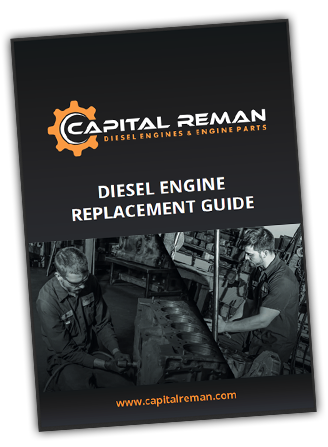Search Tags
Results
Cummins X12 Engine Review
For centuries the argument has raged. Does size matter? Well, if you like great performance, power and copious amount of torque, the answer is a resounding no. At least in the world of diesel engines. Currently being tested on the roads of North America, the X12 is a massive 600LBS lighter than other medium bore engines and has been especially designed for weight sensitive applications and for vehicles where the X15 has more grunt that’s needed for the task.
... Read more
New Laws will Double the Biofuel Output in Britain
Diesel engines are much more prevalent in Europe than in the United States, however that love affair has softened in recent years. In the wake of the VW “Dieselgate” as well as increased environmental pressure from regulators, diesel has had a bit of an image problem. Great Britain is moving forward from its reliance on diesel with a new biofuels program. The British Biofuel sector hopes to double the use of renewable fuels in the over-the-road trucking industry within the next 15 years and significantly reduce the amount of diesel fuel imported into the country. ... Read more
Shop Pics 1st Week of April 2018
In addition to working extremely hard we really are one big family. Our guys in the shop really make this place home. Thanks for another great week guys! ... Read more
When to Replace a Piece of Equipment
For fleet managers one of the toughest parts of the job is when to rebuild or "put out to pasture" an aging piece of equipment. More often than not those decision are based upon instinct and not grounded by hard analytics. This article will shed some light on the five options feet managers can make when evaluating older pieces of equipment. Purchasing a fleet of work trucks or excavators is only half of the battle. More often than not, the heavy equipment needed to do the job, is the biggest capital expense of an industrial service company. Agriculture, Transportation, Construction, Road Maintenance, Mining, Oil and Gas and Marine industries all rely on their fleets to produce sustainable revenue. The life span of each piece of equipment should be factored into not only the initial cost but variable costs of running the equipment. When a fleet manager is evaluating what to do with an aging piece of equipment they need to adequately understand their options, factor in initial and future costs, analyze the resale and depreciation of the equipment and how to improve efficiency when they can. It is not a decision to be made lightly. ... Read more
Shop Pictures Week of 1-26-18
We've been off to a busy start here at Capital Reman in 2018. Here are a few shop pictures of engines going out the door. ... Read more
The Curious Case of Rudolf Diesel
It is a surprise that Volkswagen hasn't blamed Rudolf Christian Diesel for their recent woes as if he hadn’t invented the damned diesel engine they wouldn’t have had to cheat the emission figures. What is not in doubt is that the man was an engineering genius.
Diesel was born in Paris in 1858 to Bavarian immigrants but when he was 12 years old his parents were forced to flee France because of the Franco-Prussian war. They settled in London but soon after Diesel was dispatched to live with his uncle and aunt in Augsburg, a relatively small Bavarian city, best known for being the birthplace of Mozart’s parents.
The purpose of this was so that Diesel could become fluent in German whilst being educated at Königliche Kreis-Gewerbeschule (Royal Circle Vocational College), where his uncle taught math. ... Read more
Advantages of Longblocks over Complete Engines
Short Blocks are a non-running engine. They consist of an engine block, crankshaft and connecting rods. A short block however does not consist of a cylinder head, liners, gaskets, rings a timed gear-train or any kind of ancillary parts including the fuel system. Advantages: Short blocks are great for customers who have a non-cracked cylinder head but an un-useable crankshaft. Usually when a crankshaft spins a bearing the entire engine seizes up also ruining the head. Customers with a workable head can save a great deal of time and money just opting for a new block/crankshaft combo. ... Read more
Common Differences Between Marine and Industrial Diesel Engines
There is no standard diesel engine for every application. For example there are industrial applications, truck application, electrical power generation, RV applications, heavy duty emergency, pumps and of course marine applications. Although, each engine is slightly different the core design is the same. The exhaust, cooling, electrical and fuel systems are all different in marine engines. This article will discuss the differences between industrial diesel engines and their marine counterparts. ... Read more
Machine Shop Pictures 9-22-17
Take a look at three new engines shipping out. We take great pride in building our own pallets, wrapping them in protective shrink wrap, supplying break-in instructions and nose loading them during transit. ... Read more
Mack Goes All In With Alternative to Diesel Fuel: DME
Technology is progressing at an ever increasing rate. The future is now! It seems you can’t go a day without reading about robots, self driving cars or even the new Hyperloop projects which will transport people hundreds of miles in mere minutes. Many of those in the automotive and transportation sectors believe diesel engines best days are behind them. A team of scientists however believe there is still use left for the diesel engines in the world of tomorrow. A team of researchers at Queen’s University in Belfast, Ireland are working on a different fuel source for the engines known as Dimethyl Ether (DME). DME is a biofuel derived from methane. Methane is commonly captured from decomposing organic material, agriculture, waste and coal and reused as a fuel source. DME is viewed as a clean diesel fuel source and will be able to be used with existing diesel engines. ... Read more




